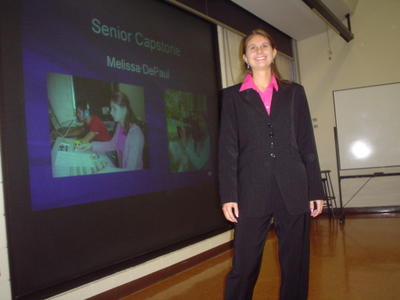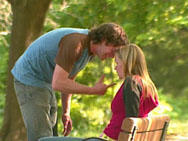 Melissa DePaul put herself out there for the Westminster community, friends and family to inspect as she made her senior presentation on Tuesday afternoon. Her confidence and experience should serve her well going into the job market She's updated her blog with an account of how things went. Check it out!
Melissa DePaul put herself out there for the Westminster community, friends and family to inspect as she made her senior presentation on Tuesday afternoon. Her confidence and experience should serve her well going into the job market She's updated her blog with an account of how things went. Check it out!Melissa is a great example of the student who is prepared to cope with a crisis. In addition to having her portfolio samples on DVD, she had a VHS tape as backup and she also pulled stories from PC sources and the web.
Unfortunately, the audio quality on the DVD and VHS were low and somewhat distorted. We're still trying to determine exactly what the problem was. Melissa did test both out in another classroom since the lecture hall was locked the night before. However, nothing will ever replace testing out the equipment in the room you will use and the importance of rehearsing in the venue where you present. You can identify problems well in advance and you have time to resolve these issues.










